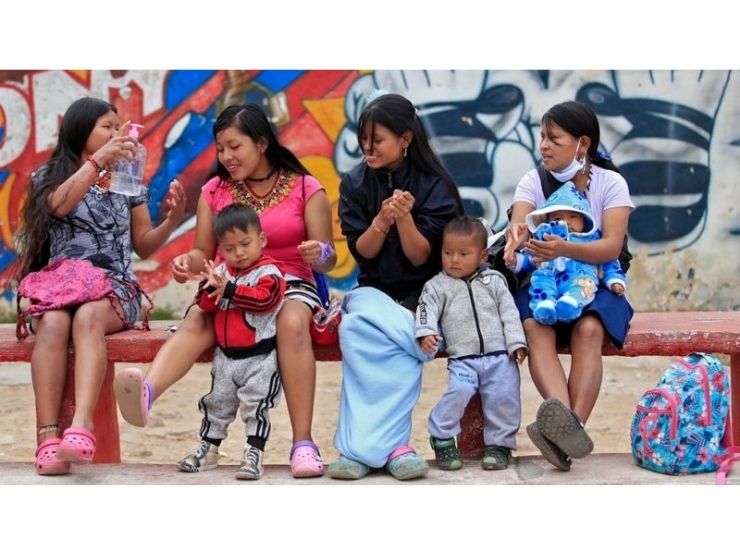Protect the rights of victims of domestic violence
Protect the rights of victims of domestic violence
“Jealous husband beats wife in front of everyone,” “Children admitted to the hospital from parental beatings,” “Beats Means Love.” How often, scrolling through your news feed, do you come across such headlines? Are there people you know who are victims of domestic violence? What should you do if you are a victim yourself?
First, let’s understand what domestic violence is. Simply put, it is domestic violence. It varies in the form of physical, psychological, economic and other types. Domestic violence is perpetrated by certain family members (or equivalent persons) against others.
According to the law, this includes spouses, parents and children, grandparents and grandchildren, guardians (custodians) and wards, adoptive parents and adopted children, foster parents and children, other persons who have taken in children as prescribed by law, former spouses, step-parents and step-children, brothers and sisters (full and half-brothers), actual tutors and foster children.
Those who are in de facto marital relations, the person providing maintenance to a disabled or minor dependent, and the disabled or minor dependent himself/herself, parents of spouses, and other relatives living together are equated to family members.
The reasons for domestic violence can vary, and they are not always unambiguous. However, the most common answer to the question about the cause of violence is an argument that escalated into it.
No conflict, no violence?
One effective way to deal with domestic violence is to eliminate the conflict that may have caused it. This does not mean that there can’t and shouldn’t be disagreements in the family, they are inevitable. However, it is important to be able to resolve them in order to prevent possible domestic violence. For this purpose, if there are unresolved or, in your opinion, unresolvable conflicts, you should timely contact a psychologist or mediator.
Recognize and acknowledge
Not always the presence of hostility means subsequent domestic violence. But you should remember that one unresolved conflict can cause another, larger one which can later move into the violent phase. And when a person becomes a victim of domestic violence, an important step in confronting it is to recognize and acknowledge that they have been targeted.
Many people mistakenly believe that domestic violence is limited to physical abuse. Unfortunately, in practice there is a greater variety of forms.
The law defines domestic violence as intentional acts of a physical, psychological, economic nature or the threat thereof, as well as neglect committed by one family member against another.
It follows from this definition that there is also economic violence, as well as neglect as a type of psychological violence.
Each of us has probably heard stories that reveal the essence of these kinds of violence, but did not realize that this is what it is. For example, if a child’s father fails to pay child support or meet his child support obligations, or if healthy adult children take their pensions away from elderly and
infirm parents, this is economic violence. Similarly, it is characterized as violent if, for example, a husband forces his wife to work and take out loans for the sake of other relatives and to pay the loan.
The law clearly defines that economic violence is the intentional failure of one family member (equated person) to support another, as well as the intentional deprivation or restriction of the right to receive or dispose of property or income intended by law and/or the use of funds and property by the trustee to the detriment of the trustee.
What about neglect? It is the willful failure to take care of family members. For example, when they don’t take care of elderly grandparents, don’t give medication, don’t help them take a bath, and more.
But the most hidden form of violence is psychological, which is expressed in the form of ignoring, devaluing, controlling, isolating, threatening, blackmailing and gazlating (indoctrinating the victim into feeling insane).
Assessment of the situation
The next step, however, should be for the victim of domestic violence to actually assess the entire situation, an analysis of the possibilities by which the victim can choose the best way to protect themselves from the aggressor.
Often victims of domestic violence, being in a stressful situation due to their psychological and emotional state, cannot give an objective description of what is happening, and therefore are not able to see any threats to themselves or, conversely, seeing all these threats, cannot do anything.
In such cases, relatives, relatives, friends, the local community and neighbors should be the first to be involved. Showing sensitivity, compassion, empathy, first, will show the person that he or she is not left alone with his or her problem; second, will help identify h





